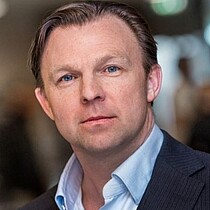

Article: Tuesday, 15 December 2015
Human resource management (HRM) has traditionally been tasked with combining strategic organisational goals with the care for employee well-being. What can organisations, HRM departments and leaders do to better align these goals and contribute to an engaged workforce in a thriving firm? Professor Dirk van Dierendonck from Rotterdam School of Management, Erasmus University (RSM) will argue for HRM that takes human needs as a starting point during his inaugural address on Friday 18 December at Erasmus University Rotterdam. He will explain why a people-centric approach allows employees to flourish.
This approach starts with the recognition that organisations essentially are their employees, says Van Dierendonck, adding that organisations can only perform well when the people who work there do. He says that in a globalised service-oriented economy the workforce is increasingly made up of professionals who value work as a source of personal development and happiness. As a result, employee performance these days is more closely related to psychological well-being. Organisations that allow people to flourish in their work will likely see better company performance, argues the professor.
Prof. Van Dierendonck says that the concept of flourishing goes beyond the often used ‘employee engagement’ as a measure of well-being. Where employee engagement refers to a state of being, flourishing describes a long-term view of personal development. Van Dierendonck proposes six dimensions to describe employee flourishing, which correspond to basic human needs: experiencing vitality, having positive emotions, achieving ‘flow’, having high-quality relations with others, having a purpose in life, and striving for mastery.
So how can organisations create conditions that cater to these human needs? Creating a culture that promotes respect and trust is essential, Van Dierendonck says. Doing so reduces fear and anxiety in an organisation. Employees dare to take more risks, become more innovative, share information and feel recognised. That’s when people start flourishing, says the professor. He explains that there are several ways organisations can instil trust and respect.
For example, some organisations change their system of appraisals to focus on achieving the right job fit for every person. Others arrange their talent management to reflect expectations of future performance instead of looking back: “Would I want this person in my team? Is he or she ready for promotion today?”
An HRM approach geared towards employee flourishing calls for a people-oriented leadership culture. Prof. Van Dierendonck argues for servant leadership. This more humble type of leader focuses on personal growth of others by allowing employees to use and develop a wide variety of skills and abilities. Servant leadership also asks how the organisation’s actions will affect society. This type of leader is also likely to do well in self-managing teams that are currently on the rise.
Dirk van Dierendonck is professor of Human Resource Management at Rotterdam School of Management, Erasmus University (RSM). He has published on topics such as leadership, career success, selection, downsizing, measurement development, change, conflict at work, and worker well-being in terms of ‘burn-out’, job satisfaction, organisational commitment and engagement.


Science Communication and Media Officer

Corporate Communications & PR Manager
Rotterdam School of Management, Erasmus University (RSM) is one of Europe’s top-ranked business schools. RSM provides ground-breaking research and education furthering excellence in all aspects of management and is based in the international port city of Rotterdam – a vital nexus of business, logistics and trade. RSM’s primary focus is on developing business leaders with international careers who can become a force for positive change by carrying their innovative mindset into a sustainable future. Our first-class range of bachelor, master, MBA, PhD and executive programmes encourage them to become to become critical, creative, caring and collaborative thinkers and doers.
